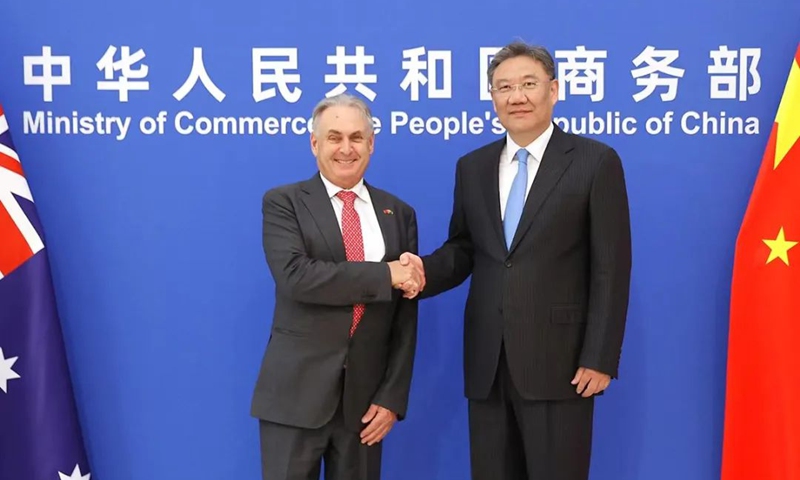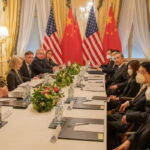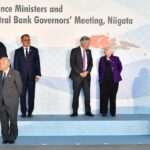Australian Trade Minister Don Farrell’s visit to Beijing witnessed multiple encouraging signs in the stabilized recovery of China-Australia cooperation, including the resumption of a landmark high-level economic meeting and the minister’s tour of Beijing’s iconic Forbidden City.
Chinese Commerce Minister Wang Wentao and Farrell on Friday co-chaired the 16th Joint Ministerial Economic Commission in Beijing, according to a statement published on Saturday on the official website of China’s Ministry of Commerce.
During the meeting, the two sides conducted frank, professional and comprehensive exchanges on implementing the important common understandings reached between the leaders of the two countries at their Bali meeting, steadily developing bilateral economic and trade relations, properly handling economic and trade concerns, and expanding practical cooperation, among other agenda items.
The two sides agreed to restart economic and trade dialogue mechanisms such as the FTA joint committee meeting and the high-level trade remedy dialogue, strengthening cooperation on green and low-carbon development and supporting cooperation between companies of the two countries in the fields of digital trade and e-commerce.
The joint ministerial economic commission this time marked the first time since it was last convened in Beijing in 2017, which is of symbolic significance to the return of bilateral business relations toward the right track, one expert said.
Over the past few years, due to the escalating political tensions fueled by the former Morrison government and the pandemic, high-level exchanges between China and Australia were severely affected. In May 2021, the National Development and Reform Commission (NDRC) announced that it would indefinitely suspend all activities under China-Australia strategic economic dialogue.
“Against this backdrop, the resumption of the high-level economic dialogue could be considered as a starting point for the reset of bilateral relations,” Chen Hong, president of the Chinese Association of Australian Studies and director of the Australian Studies Centre at East China Normal University, told the Global Times on Saturday.
There is no doubt that the general-direction consensus between the two ministers will lay the foundation for both sides to address some specific issues, such as the “outstanding trade impediments” mentioned by Farrell ahead of his Beijing visit, in the future, Chen said. But the significance of their talks is not just limited to economic level, but also about looking to the future with the view of expanding cooperation to a wider range of areas.
In addition to the resumption of high-level meetings, Farrell was hosted on a tour of Beijing’s Forbidden City by a senior Chinese Commerce Ministry official, ahead of talks with Wang, according to Chinese media reports. Observers generally said the high-level reception is an encouraging sign.
From last year’s Bali meeting to this year’s economic and diplomatic exchanges between the two countries, high-level exchanges are on the rise.
Meanwhile, Australian state governments and business organizations are also actively promoting bilateral economic ties, calling for strengthened cooperation with China, as reflected by recent visits by premiers of Victoria and West Australia.
The boosts from the top-down and bottom-up approaches have jointly contributed to the momentum for bilateral trade relations to get back on track, according to Chen.
But uncertainties remain. As a close ally of the US, Australia will certainly be cooperative to the strategy of the US. US President Joe Biden is reportedly scheduled to visit Sydney for the Quad leaders’ summit on May 24.
But Canberra needs to understand that actions that harm China’s core interests and provoke China’s red lines could undermine the improvement of bilateral relations. It is crucial for Australia to have the political wisdom and strategic confidence to cherish the hard-won recovery of China-Australia ties, instead of pursuing the strategic interests of the US at the expense of its own interests, Chen noted.
(Global Times)




